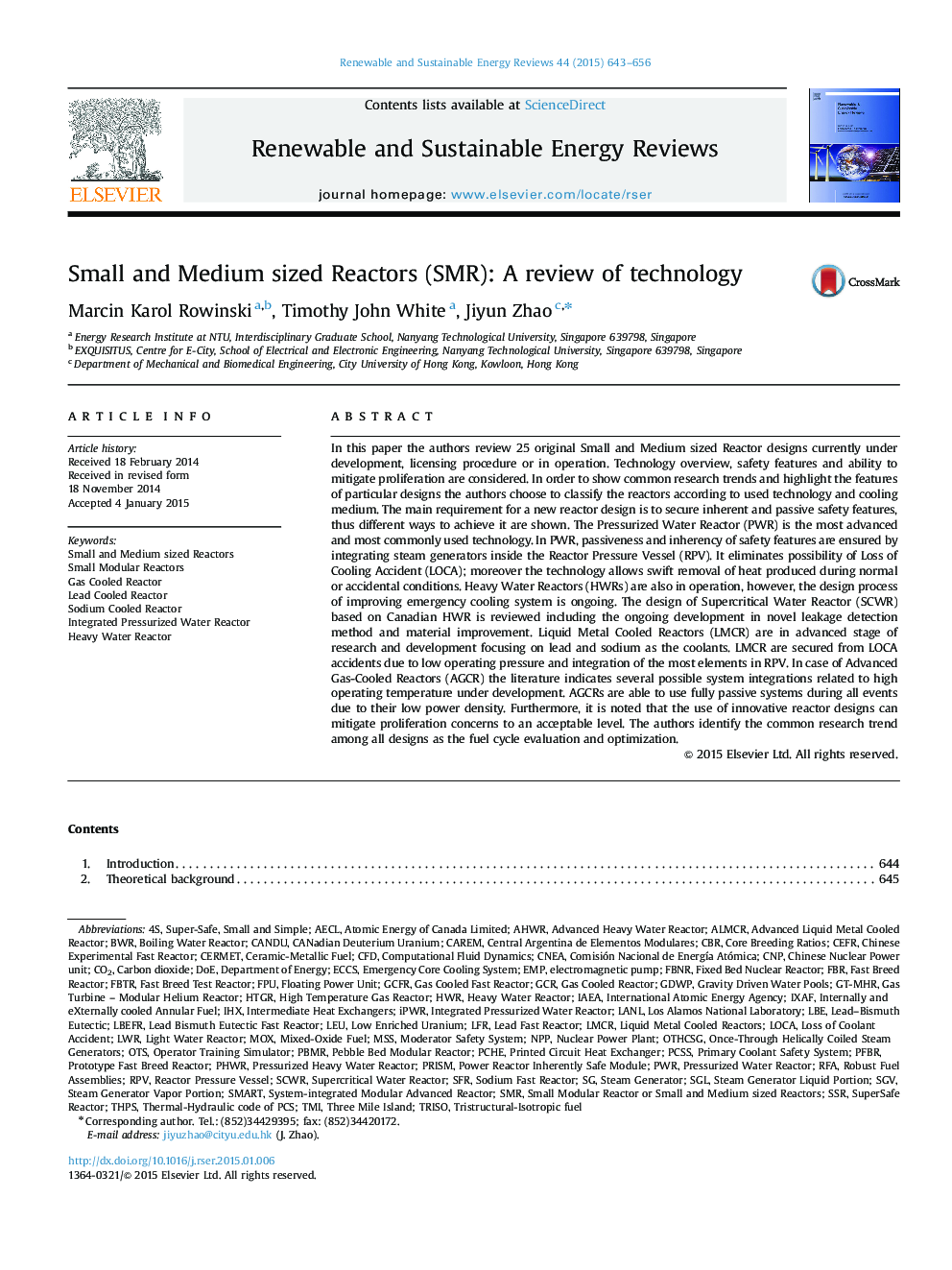| Article ID | Journal | Published Year | Pages | File Type |
|---|---|---|---|---|
| 8117419 | Renewable and Sustainable Energy Reviews | 2015 | 14 Pages |
Abstract
In this paper the authors review 25 original Small and Medium sized Reactor designs currently under development, licensing procedure or in operation. Technology overview, safety features and ability to mitigate proliferation are considered. In order to show common research trends and highlight the features of particular designs the authors choose to classify the reactors according to used technology and cooling medium. The main requirement for a new reactor design is to secure inherent and passive safety features, thus different ways to achieve it are shown. The Pressurized Water Reactor (PWR) is the most advanced and most commonly used technology. In PWR, passiveness and inherency of safety features are ensured by integrating steam generators inside the Reactor Pressure Vessel (RPV). It eliminates possibility of Loss of Cooling Accident (LOCA); moreover the technology allows swift removal of heat produced during normal or accidental conditions. Heavy Water Reactors (HWRs) are also in operation, however, the design process of improving emergency cooling system is ongoing. The design of Supercritical Water Reactor (SCWR) based on Canadian HWR is reviewed including the ongoing development in novel leakage detection method and material improvement. Liquid Metal Cooled Reactors (LMCR) are in advanced stage of research and development focusing on lead and sodium as the coolants. LMCR are secured from LOCA accidents due to low operating pressure and integration of the most elements in RPV. In case of Advanced Gas-Cooled Reactors (AGCR) the literature indicates several possible system integrations related to high operating temperature under development. AGCRs are able to use fully passive systems during all events due to their low power density. Furthermore, it is noted that the use of innovative reactor designs can mitigate proliferation concerns to an acceptable level. The authors identify the common research trend among all designs as the fuel cycle evaluation and optimization.
Keywords
LFRCEFRBWRFPUECCSAEclOTSGCFRPFBRHTGRLBEGCRCANDUGT-MHRPCHEAHWRPHWRGas Cooled ReactorHigh temperature gas reactorIHXPBMRLocaAtomic Energy of Canada LimitedLead–bismuth eutecticDOEFBTRCBRFBRPCSSLANLCNPHWREMPLWRNPPMSSLEUIPWRLos Alamos National LaboratoryIAEAinternational atomic energy agencyLoss of coolant accidentLow Enriched UraniumMOXCFDComputational fluid dynamicsCarbon dioxideBoiling water reactorLight water reactorPressurized heavy water reactorAdvanced heavy water reactorLead Fast ReactorGas cooled fast reactorCermetEmergency Core Cooling SystemOperator training simulatorPrinted circuit heat exchangerPrismnuclear power plantDepartment of EnergyElectromagnetic pumpCO2
Related Topics
Physical Sciences and Engineering
Energy
Renewable Energy, Sustainability and the Environment
Authors
Marcin Karol Rowinski, Timothy John White, Jiyun Zhao,
